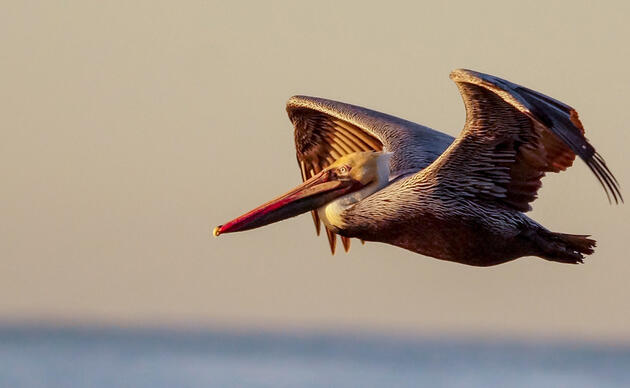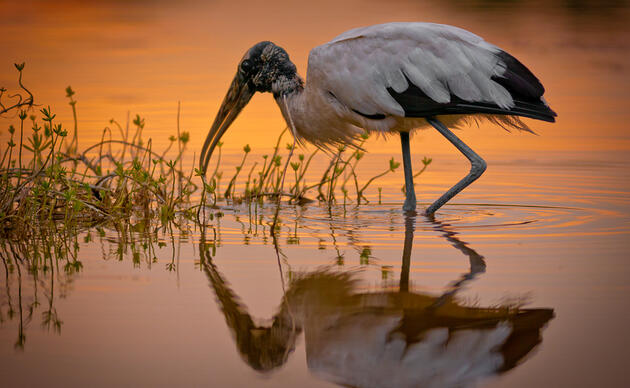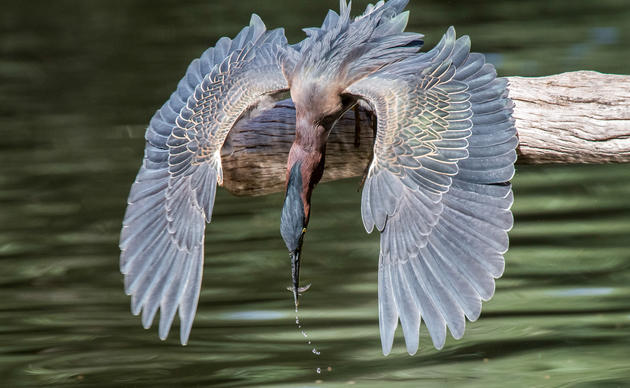In 2022, several Audubon SC priorities were passed by the South Carolina General Assembly, including significant investments in land conservation and resilience, increased protections for shorebirds, and a new mechanism for funding land conservation at the local level. These advances are critical to protecting the places that birds need in South Carolina. We are thankful for the bipartisan work of our state’s leadership and look forward to a productive legislative session in 2023.
A top priority for Audubon SC, the County Green County Green Space Sales Tax Act (S.152), passed and was signed into law this year with support from committed Audubon members and our team at the Statehouse. This bill allows county governments, upon a successful county-wide referendum, to impose up to a one percent sales and use tax to fund the acquisition of land and green spaces. This provides counties a significant tool, and the financial ability, to protect and preserve iconic lands and green spaces as our state continues to grow.
Another top priority at the Statehouse was the approval of new regulations proposed by the SC Department of Natural Resources (SCDNR) that will limit human and animal disturbances on key barrier islands where threatened and endangered bird species nest and migrate. These regulations, which required approval by the Legislature, went into effect at the end of May. The SC Department of Natural Resources has begun a public education process about the new regulations and will begin posting necessary signage at affected locations as well as stepping up law enforcement patrols of those areas.
We also supported House Bill 4831, which directs the SC Department of Commerce to conduct an economic development study to create a roadmap for South Carolina to effectively compete in attracting offshore wind energy supply chain industries to the State. This does not necessarily bring wind energy itself to the state, as that is not the focus of the study, and we will carefully monitor any efforts to do so to ensure that birds are considered in any siting.
Audubon SC also strongly supported significant investments in land conservation proposed by state agencies and the Governor and we were glad to see that the General Assembly achieved agreement to provide near record funds for land acquisition, including:
- $25 million in new state non-recurring funding to the Conservation Bank, which combined with the Bank’s baseline budget, other pass-throughs, and federal funds results in a $35 million budget for the Bank
- $40 million in new state one-time funding for land acquisition and preservation for SCDNR
- $100 million in federal ARPA funding for the Office of Resilience
Over the course of the last year, our Audubon SC team has also been contributing to the implementation of the SC Disaster Relief and Resilience Act, a bill we helped pass in 2020 that created the SC Office of Resilience (SCOR). We have been serving on the Environmental Advisory Subcommittee for the SCOR’s statewide resilience plan, which will inform how funds allocated for resilience are spent in the state. We are pleased with SCOR’s commitment to natural climate solutions and the consideration of land protection as a tool to mitigate flooding. We will continue to work with SCOR to achieve the goals set out in the original legislation.
Looking forward to next year, we plan to continue working on advancing the goals and objectives of the SC Conservation Enhancement Act that did not pass this year. That bill would have reinstated a dedicated funding stream for the SC Conservation Bank. We also will be working on legislation to increase transparency in the horseshoe crab harvest data to ensure that the resource can support a healthy Red Knot population, which relies on horseshoe crab eggs in SC to allow them to continue their migratory journey to the Arctic. And last but not least, we will continue our support of a clean and affordable energy future in our state.
For more information or to get involved, please sign up here.



